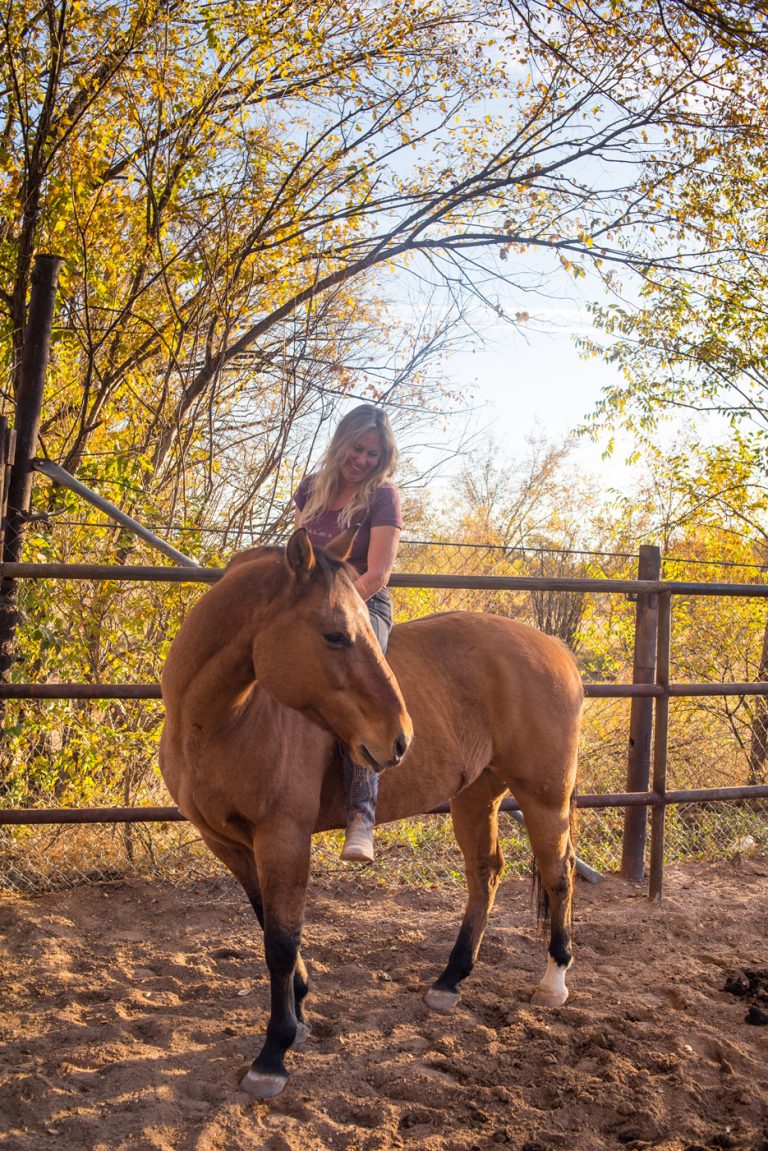Many of us love and care for horses who’ve been through traumatic situations – an accident, an abusive former home, etc. Seeing someone we love come fully alive and be able to trust again is incredibly poignant, and the bond we build with a horse as we help them free themselves of trauma is truly magical. It’s also a challenging and sometimes lonely path. Progress can be slow, and sometimes friends don’t understand what’s taking you so long with that horse, or why he/she isn’t “behaving better.” There’s a dearth of information on how to help horses with trauma, so it can be hard to know what techniques to try.
In the past 20 years, fascinating trauma treatment research is changing the way trauma is treated in humans. Many treatment methods for humans use verbal expression; obviously, that’s not an option with horses. I’ve methodically reviewed and tested techniques that I’ve pulled from somatic experiencing theory, polyvagal theory, and other approaches – techniques that use touch, body language, sound, breathing, etc. It’s a pretty extensive and effective list; I employ different methods depending on what a horse needs at any given moment.
I’d love to support and guide you if you’d like help with a horse who’s struggling to function happily. I’m sure you already have a lot of pretty amazing ideas and instincts, so I see working together as a way to pool our resources to help your horse. You know your horse best, and you’re the one he/she trusts the most. I’m there to back you up, problem solve, give you new ideas, and help you refine your techniques. If you live outside of New Mexico, working together by phone/Zoom/Skype/Pivo is a good option, and you can also send me videos to get supportive feedback.
Want to start getting support?
Trauma is caused by being in a situation in which our nervous system is overwhelmed, beyond our ability to cope. Sometimes we can “shake it off”; this phrase seems apt because it is: animals often shake themselves to release energy and clear their nervous systems after a traumatic event. Similarly, people sometimes laugh hysterically or sob after a scary or traumatic event as a way to release tension or bring their nervous system back into balance. But deeply terrifying and/or repeated traumatic events can prove difficult to release, and these memories can trap us in physiological, behavioral, and emotional patterns that, over time, make it difficult to function and maintain positive connections with others. The same is true with horses.
Trauma gets stored in our bodies and nervous systems. Traumatic events, and our subsequent attempts to protect ourselves, alter our brains and neurologic pathways. These altered pathways keep the trauma “trapped” inside our bodies, brains, hearts, and souls, until we find ways to shift and release it.
The field of trauma treatment is growing and changing fast, particularly in the area of understanding how the nervous system works. The field of equine trauma treatment is really just getting started. What an exciting time to be involved in this field: we’ve developed some effective tools already, and there’s so much to learn and explore.
Photo Credit: keithscottart.com
